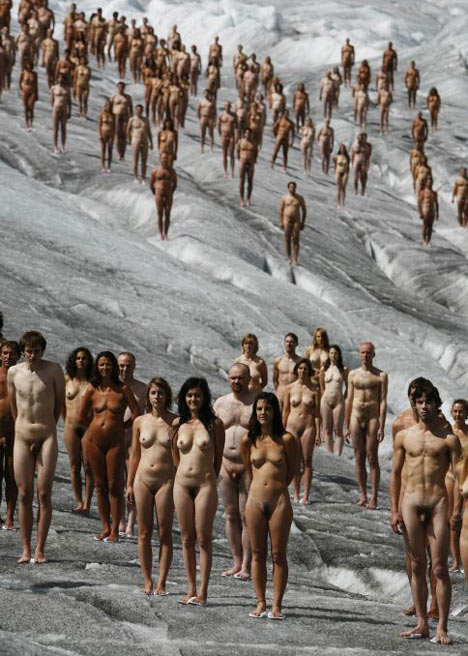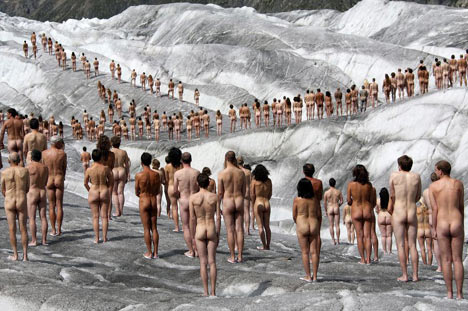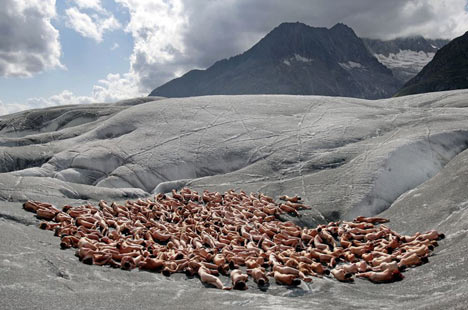Hundreds of naked volunteers brave cold for glacier photo
Hundreds of people braved goosepimples and frostbite when they posed naked on Switzerland's shrinking Aletsch glacier for U.S. photographer Spencer Tunick.The photoshoot is part of a Greenpeace campaign to raise awareness of global warming.
Tunick, perched on a ladder and using a megaphone, directed nearly 600 volunteers from all over Europe and photographed them on a rocky outcrop overlooking the glacier, which is the largest in the Alps.

The volunteers are stripped naked against a background of ice and snow
Later he took pictures of them standing in groups on the mass of ice and lying down. Camera crews were staged at five different points on the glacier to take photographs.
Glaciers are sensitive to climate change and have been receding since the start of the industrial age but the pace of shrinkage has accelerated in recent years.
The environmental group Greenpeace, which organised the shoot, said the aim was to "establish a symbolic relationship between the vulnerability of the melting glacier and the human body."

Chilly volunteers stood still for the photographer's latest 'artwork'
The Aletsch descends around the south side of the Jungfrau mountain in the Upper Rhone Valley. Alpine glaciers have lost about one-third of their length and half their volume over the past 150 years.
The Aletsch ice mass has retreated by 115 metres in the last two years alone, said Greenpeace.
Tunick has staged mass nude photo shoots in cities across the world, from Newcastle, Britain, to Mexico City, where a record 18,000 people took off their clothes in the Mexican capital's Zocalo square in May.

The hardy volunteers even lay down on the ice for one of the photos
Speaking to Geneva's Le Temps newspaper in an interview published before the shoot on Saturday, Tunick said his photographs were both works of art and political statements.
"I will try to treat the body on two levels. On an abstract level, as if they were flowers or stones. And on a more social level, to represent their vulnerability and humanity with regard to nature and the city and to remind people where we come from."
Switzerland has about 1,800 glaciers and almost all of them are shrinking rapidly.
Subscribe to:
Post Comments
(
Atom
)



No comments :
Post a Comment